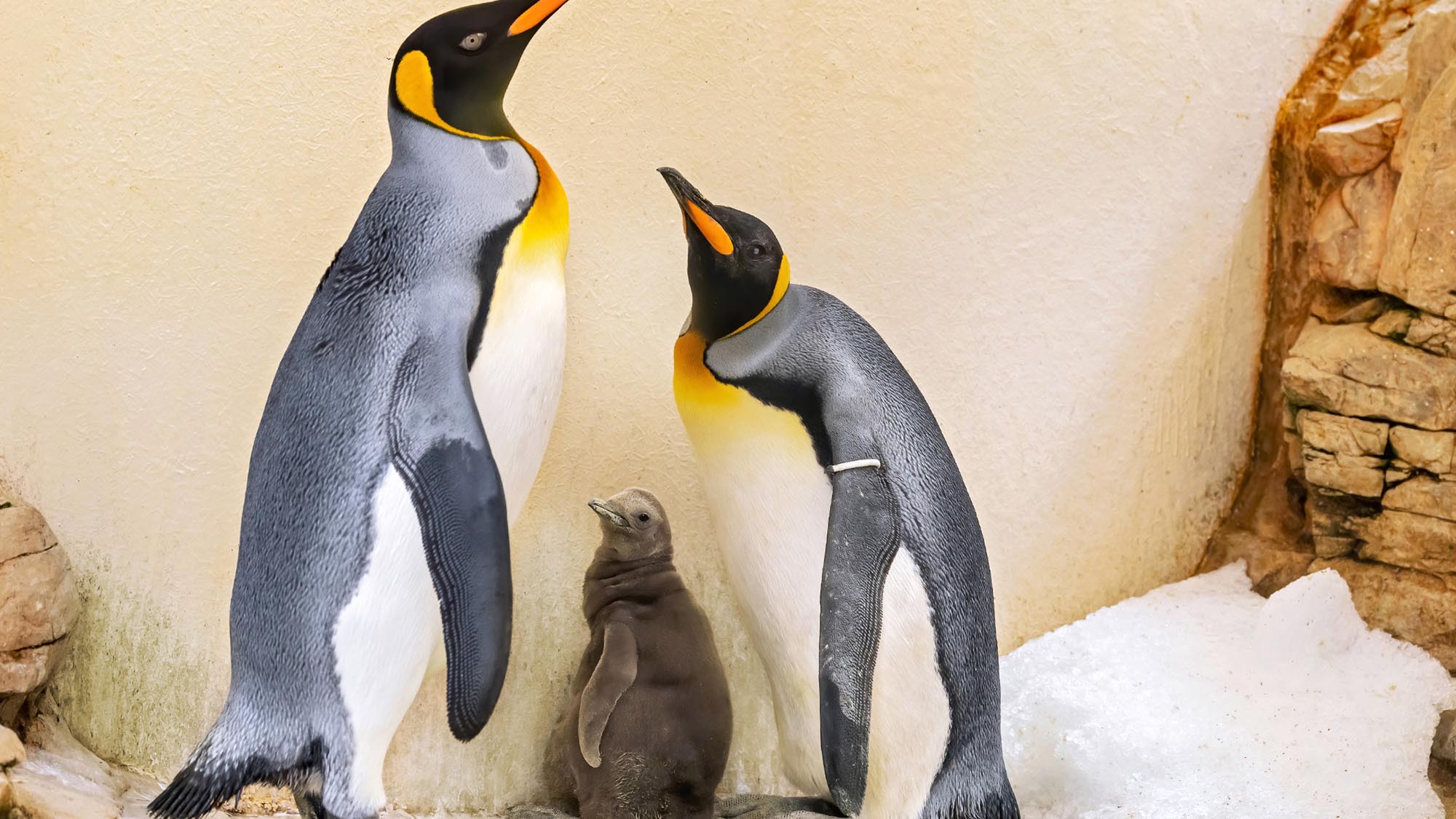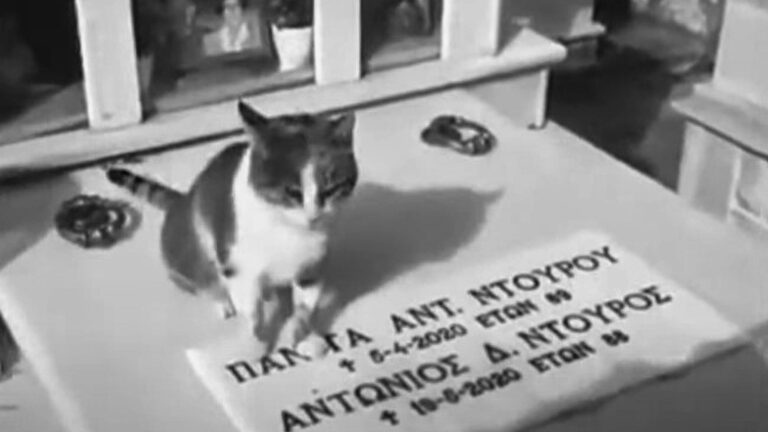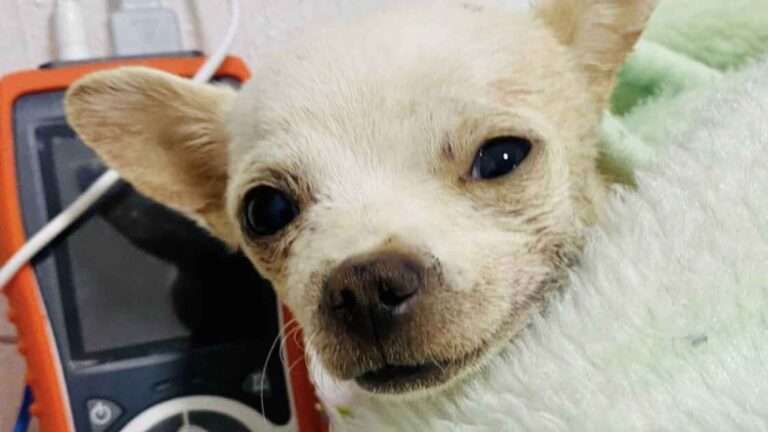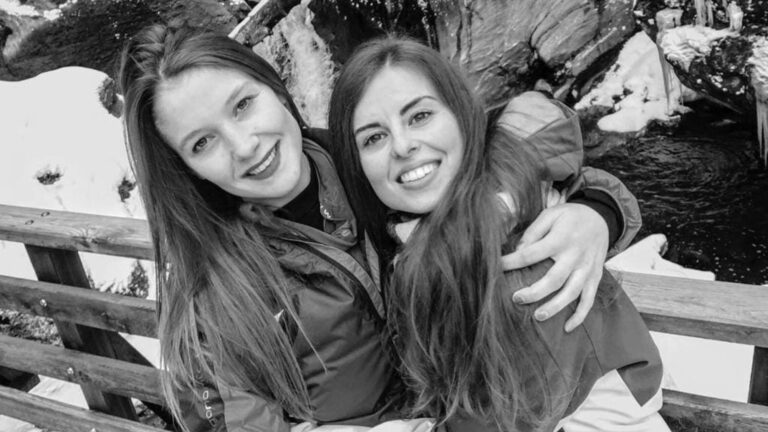An adorable little king penguin chick that recently hatched in an Austrian zoo as a part of a conservation programme has emerged from hiding under its parent’s soft belly, and has started exploring its enclosure at the zoo.
The little one that hid in its parents’ soft belly fold until a few days ago has now shown great curiosity for its surroundings by wandering around and exploring its habitat over a month after it hatched in the Tiergarten Schonbrunn Zoo located in the Austrian capital of Vienna on 26th July.
Authorities announced they will proudly present the young one at the Species Conservation Conference which will take place at the zoo between 3rd and 5th September.
King penguins (Aptenodytes patagonicus) which represent the second largest penguin species on Earth have a specific trait of not building nests, similar to emperor penguins (Aptenodytes forsteri).
The zoo revealed that they instead stand upright and incubate the egg on the tops of their feet under a loose fold of abdominal skin called a brood patch.
Zoo Director Stephan Hering-Hagenbeck told Newsflash more about this phenomenon and added: “King penguins incubate their eggs upright in a belly fold. This is where they keep the chick warm for the first few weeks. The young animal is now over 20 centimeters (7.8 in) tall and only fits between feet and stomach with great difficulty.”
Additionally, both parents are equally responsible for raising their young and take turns feeding their chicks predigested fish porridge. In nature king penguins mainly eat lanternfish, squid and krill.
The species is native to the Subantarctic islands at the northern reaches of Antarctica, the island of South Georgia, and other temperate islands of the region.
King penguins are considered great divers as they repeatedly dive to over 100 metres (300 ft), and have been recorded at depths greater than 300 metres (1,000 ft) on foraging trips.
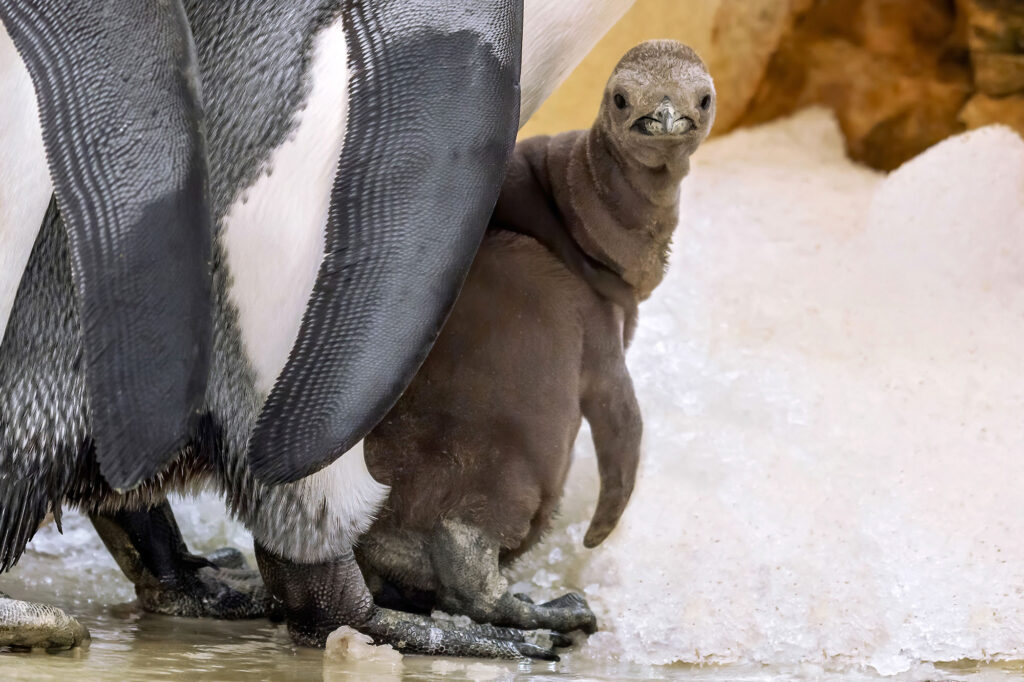
According to Hering-Hagenbeck, all of the penguins residing in the zoo are important ambassadors and advocate for their fellow species in the wild, who are troubled by climate change and environmental pollution.
Over 21 other nature and species protection organizations will present their work at the species conservation conference which is set to take place at the Vienna Zoo in the beginning of September.
Aside from presentations, the conference will include multiple interesting activities such as determining the age of trees with the help of experts from the Austrian Federal Gardens, while workshops where interested individuals can paint postcards with protected animals motives will be supported by the Vienna Environmental Protection Department.
Additionally, the Oceanblue Association will provide information regarding marine protection and plastic waste problems in waters on a global scale, while the Austrian Ornithological Institute will help enthusiasts learn how to look for animal tracks.
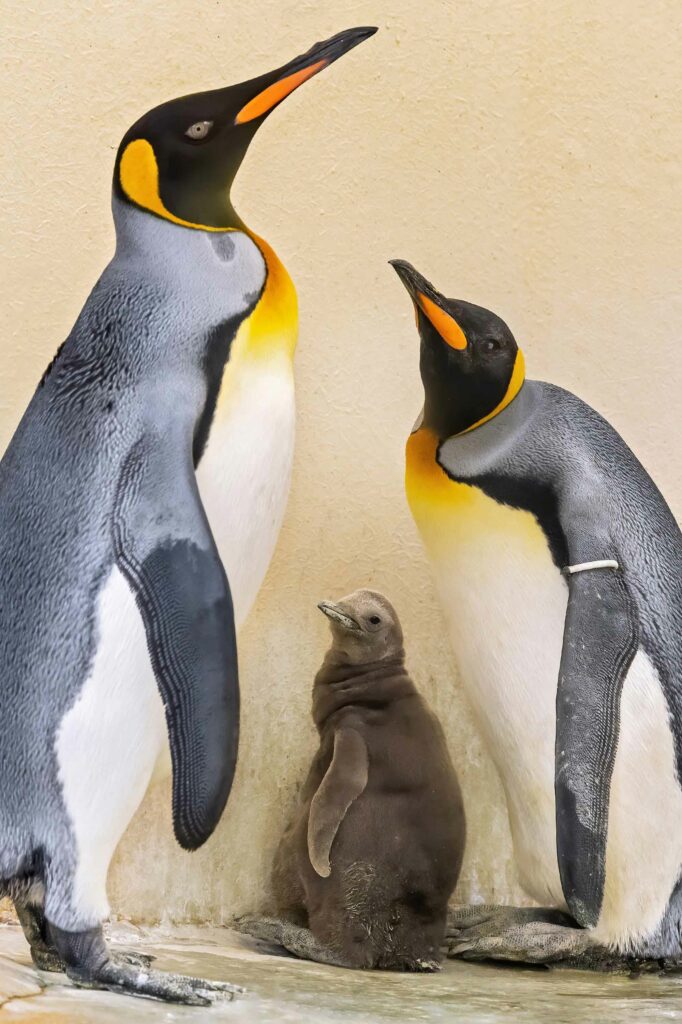
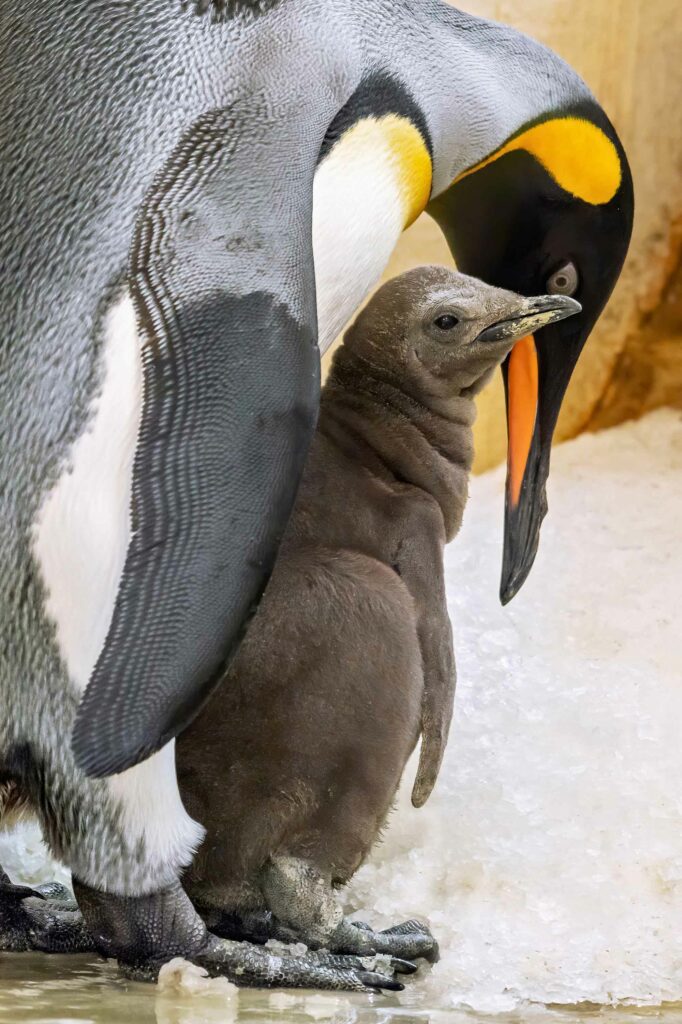
To find out more about the author, editor or agency that supplied this story – please click below.
Story By: Georgina Jadikovska, Sub-Editor: James King, Agency: Newsflash
The Ananova page is created by and dedicated to professional, independent freelance journalists. It is a place for us to showcase our work. When our news is sold to our media partners, we will include the link here.

